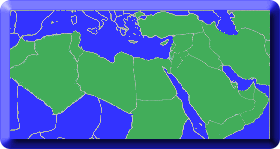
Topics in Middle Eastern and North African Economies
Document Type
Article
Publication Date
9-26-2021
Journal Title
Sustainability
Volume
13
Issue
19
Publisher
MDPI
Abstract
The objective of this study is to investigate the impacts of the environmental and socio-economic risks on the fisheries in the Mediterranean region from an economic point of view. A balanced panel of 21 Mediterranean countries for 2001–2018 has been estimated by the GLS method, considering heteroskedasticity and correlation among cross sections. The volume of fish landed and landed values have been considered in two models. The results show that increases in sea bottom and surface temperature, H+ ion concentration and salinity threaten the fisheries in the Mediterranean region for the volume of fish landed and that sea surface temperature and salinity negatively influence landed values. In addition, there is an inverse U-shaped relationship between human population and fisheries. Moreover, the Human Development Index (HDI), an indicator of countries’ adaptive capacity, has a positive impact on fisheries and indicates that countries can safeguard fisheries by improving their adaptive capacity. Finally, our results strongly show the risk of climate change for the fisheries in the Mediterranean region and that fisheries are adversely impacted by climate change as well as worsening socio-economic conditions in the absence of adaptation plans.
Recommended Citation
Hilmi, Nathalie; Farahmand, Shekoofeh; Lam, Vicky W. Y.; Cinar, Mine; Alain Safa; and Gilloteaux, Juliette, "The Impacts of Environmental and Socio-Economic Risks on the Fisheries in the Mediterranean Region". Topics in Middle Eastern and North African Economies, electronic journal, 13, 19, MDPI, 2021, http://www.luc.edu/orgs/meea/
Creative Commons License

This work is licensed under a Creative Commons Attribution-Noncommercial-No Derivative Works 3.0 License.
Copyright Statement
© The Author(s), 2021



Comments
Presentation of the articles in the Topics in Middle Eastern and North African Economies was made possible by a limited license granted to Loyola University Chicago and Middle East Economics Association from the authors who have retained all copyrights in the articles.